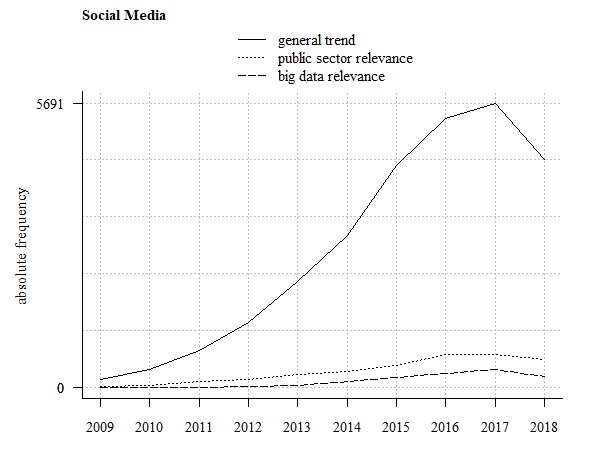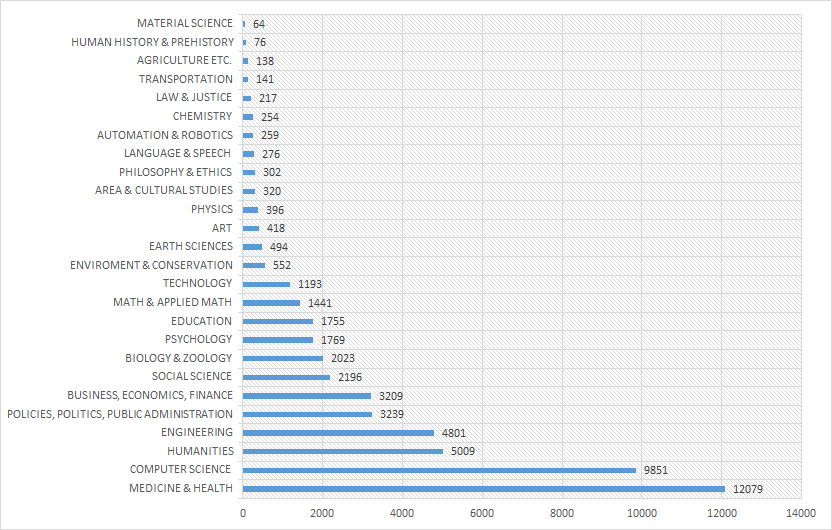Open data - Download the Knowledge base
You are free to download the data of this Knowledge base.
To do this you must be an authenticated user: log in or sign in now.
All the data are licensed as Creative Common CC-BY 4.0.
By using social media in governmental context, a new form of interaction between citizens and government can be established. The social media data can be used to collect useful information about citizens’ needs and opinions, as well as integrate citizens directly in the decision making process. Some governmental institutions also use their own social media accounts and post content online. [1][2]
The trend emphasizes the migration of social and economic activities to the internet, which indicates the relocation of social, economic and governmental activities from the “real-world” to the internet. Examples for such a migration can be seen in social networks and the adoption of E-services, such as E-health and E-government, which change traditional communication channels and generate many data. [3]


| Agenda Setting | Policy Design and Analysis | Policy Implementation | Policy Monitoring and Evaluation | |
|---|---|---|---|---|
| Agriculture, Fisheries, Forestry & Foods | ||||
| Economy & Finance | ||||
| Education, Youth, Culture & Sport | ||||
| Employment & Social Security | ||||
| Environment & Energy | ||||
| Health | ||||
| Foreign Affairs and Defence | ||||
| Justice, Legal System & Public Safety | ||||
| Public Affairs | ||||
| Innovation, Science & Technology | ||||
| Urban Planning & Transport | ||||
| Institutional Questions / Internal Affairs |
Is it possible to extract reliable and useful data, when many comments on the social media can be sarcastic?
Sometimes the opinion that seems more prevalent on the internet is not one that is shared by the majority of people. This usually happens due to the vocal minorities, groups of people that are very active and loud on social media but only represent a small percentage of the population. That can create a distorted image of the reality of some situations. How can this be dealt with.
If you consider that according to Europe's Digital Progress Report 2017 63% of EU citizens go online every day, there is at least high potential for a growing number of citizens that communicate via social media channels.
We are increasingly subject to the pre-selection of content by the filters, be either algorithms or our social networks that we rely on to receive information. Both have a tendency to create bubbles in which we receive information that confirms our beliefs. It is interesting to remember how the scientific method is a formal system, well organized to avoid forms of confirmation bias.
Finding ourselves in these bubbles does nothing more than give greater possibilities to our mental shortcuts to function badly once the heuristic reasoning mode has been activated. It is always possible to use forms of critical thinking, but the mental shortcuts that we use every days have the upper hand in most cases because we are 'cognitive savers'.
Therefore social media, how they are designed now, are extremely problematic to have informed discussions and deliberations. To involve them in governmental consultations requires a careful design of the modes of interactions to avoid the pitfalls of social media.
You are free to download the data of this Knowledge base.
To do this you must be an authenticated user: log in or sign in now.
All the data are licensed as Creative Common CC-BY 4.0.
Do you think that the…
Do you think that the opinions collected through social media can be representative of the whole society?